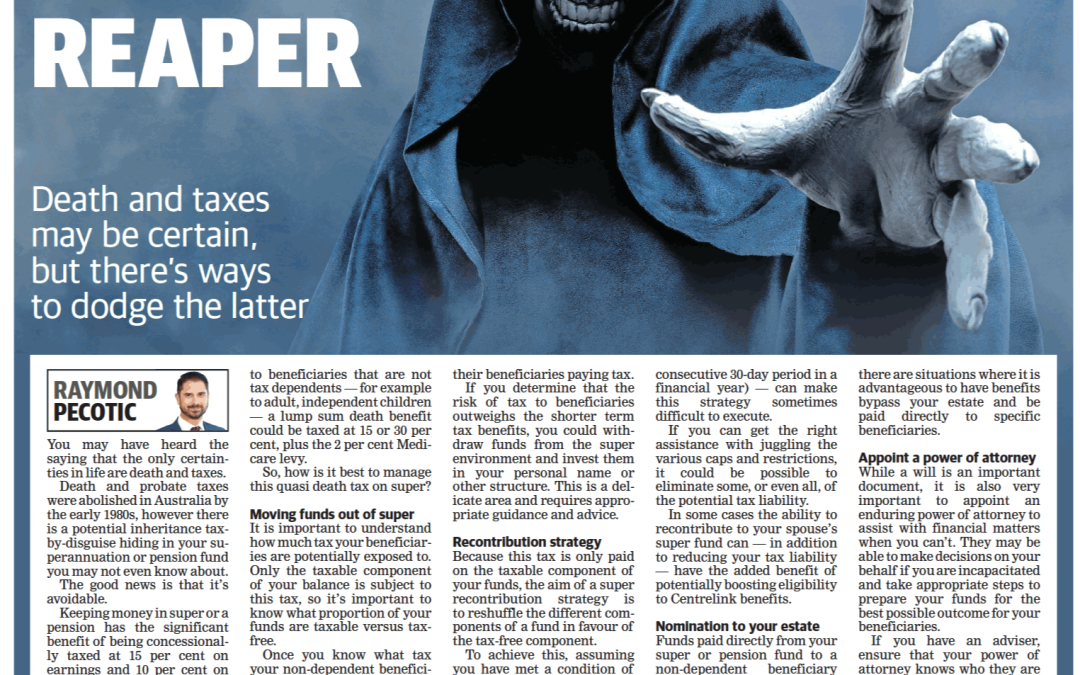This article appeared in The West Australian “Your Money” section, 18 November 2019.
While record low interest rates are causing headaches for retirees trying to derive decent income from their capital, there is another group who can rejoice from this period of low yields.
And they are participants in many UK defined benefit schemes.
Under current laws, it is possible in the majority of cases for people aged over 55 to transfer UK personal or employer pension benefits to a complying Australian superannuation fund.
It is important to note this is not the UK State Pension, but other pension funds built up whilst working in the England, Scotland, Wales and Northern Ireland.
Whether you should leave your funds with the UK scheme or move them to Australia is a complex question, with a number of factors dependant on your personal situation.
A key factor is often comparing the transfer value with what income would be generated if the retirement savings remained in the UK.
A large number of pension schemes in the UK are defined benefit in nature.
Defined benefits means that you receive an stream in retirement. This is generally calculated based on years with the employer and your remuneration.
These plans differ to accumulation funds in that the underlying value of your benefits is not dependant on contributions and investment returns. Rather it is based on a series of actuarial assumptions.
The income entitlement on this defined benefit pension has a lump sum value, known as a Cash Equivalent Transfer Value (CETV).
For any given level of income, the CETV is likely to be much higher now than it would have been even only a few years ago.
To derive the lump sum value, the actuaries need to calculate backwards.
The actuaries use complex formulas to determine how much capital would be required to meet the promised income stream over the lifetime of the policy owner.
When interest rates and yields are really high, you need less capital to generate any particular level of income.
But when yields are very low, the lump sum required to generate the same income becomes higher.
That is the situation many UK pension holders are in now.
Let’s look at some real life examples that have come through our office to highlight the boost to potential lump sum retirement income savings:
Two defined benefit pensions where in both cases the employee left employment and migrated after 18 years of employment.
Individual one received a transfer value in 2009, soon after their arrival in Perth, for £107,800.
Alternatively, she could receive a pension in retirement of £5,800p.a. This equates to a yield of 5.4% (remember, these were the days when term deposits in Australia were paying circa 6%)
Individual two received a transfer value in 2019 for £347,000 or income in retirement of £8,000p.a., equating to a yield of 2.3%
In both cases the individual was pleasantly surprised with the transfer values offered compared to the income in retirement.
However, the 2019 valuation is over 300% higher when the income in retirement is only around 75% higher.
This is net uplift of over 225%.
Why? Long term low interest rates in the UK have caused scheme actuaries to reduce long term yield expectations and therefor the cost of providing the income stream in retirement has significantly increased.
While many people may wish to hold off on transfers, reminiscing about the “good old days” of 3:1 exchange rate, the reality is that locking in this higher capital value and moving it into the concessionally taxed Australian super now may be a golden opportunity.
Exchange rates will always play a part but make sure you know what you are giving up by not transferring.
When UK interest rates increase or legislation on the calculation of benefits is altered, we expect transfer values to fall.
If you have a defined benefit scheme in the UK and have been thinking about transferring, it would pay to request a new transfer value calculation.
You may be very pleasantly surprised



